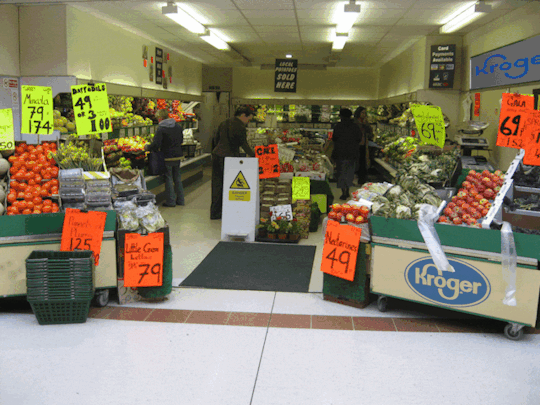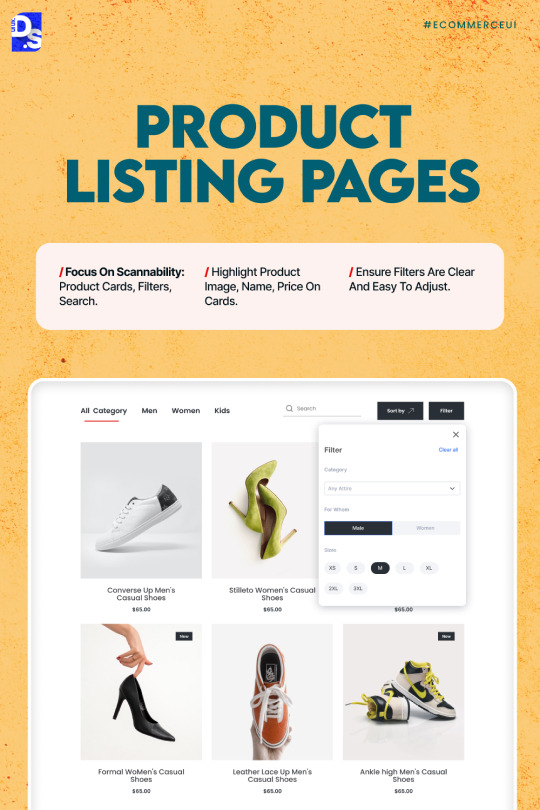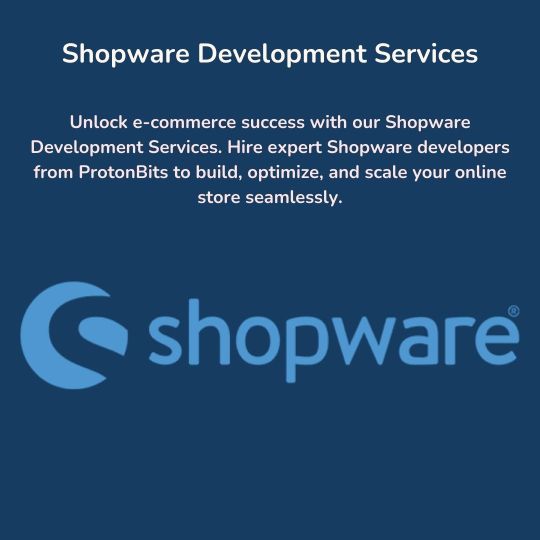#ecommerce apps
Explore tagged Tumblr posts
Text

Enhancing CRO with Shopify's Redesigned App Store
Discover how the Shopify App Store helps merchants optimize their conversion rates with smart app recommendations and data-driven insights.
Source: https://cro.media/insights/ux-ui/enhancing-cro-shopifys-redesigned-app-store/
The newly revamped Shopify App Store provides a powerful tool for business owners, offering a more streamlined and personalized experience in selecting apps that can drive both operational efficiency and higher conversion rates. In the context of Conversion Rate Optimization (CRO), the App Store's features align with key strategies that aim to improve the user experience, simplify processes, and ultimately, boost sales.
Optimized User Journey Through Simplified Navigation
The new design of the Shopify App Store is crafted to improve discoverability and ease of navigation. With a more intuitive categorization system and a smarter search functionality, merchants can now quickly find the apps they need to optimize their stores for better conversion rates. CRO focuses on reducing friction in the customer journey, and the App Store’s enhanced navigation ensures that users can access tools that simplify tasks and create a smoother experience for both merchants and customers. The improved search and the educational resources integrated into the app descriptions provide an immediate way to understand app functionalities, making it easier to integrate apps that are directly aligned with CRO goals.
Personalized Recommendations to Drive Business Success
One of the standout features of the redesigned App Store is its personalized recommendations, powered by Shopify's deep data insights. The system suggests apps based on user behavior and business needs, ensuring that merchants are shown tools that are likely to drive the best results. For CRO, this means access to apps that can optimize product pages, speed up checkout processes, improve A/B testing, and refine customer engagement. By leveraging these recommendations, merchants can select the right tools for improving conversion metrics without spending excessive time on trial and error.
Data-Driven Insights for App Selection
The 100-checkpoint review process for each app and the highlighted "featured apps" section guide merchants toward trusted tools that align with best practices in ecommerce. For CRO professionals, this focus on high-quality, proven apps ensures they can rely on effective solutions that are well-tested. Apps that automate manual tasks or integrate sophisticated analytics can help store owners reduce cart abandonment, increase site performance, and gather data for further optimization strategies—key elements of a successful CRO approach.
Clear App Evaluation for Informed Decisions
For CRO, clarity is crucial when selecting tools that will affect the customer journey. The redesigned app detail pages now present key features, benefits, pricing options, and compatibility constraints in an easily digestible format. This transparency allows merchants to quickly assess which apps can provide the most value to their business, ensuring they’re making decisions that align with their conversion goals. Whether it's streamlining the checkout process, improving mobile responsiveness, or personalizing the shopping experience, these insights make it easier for CRO specialists to implement the right solutions.
Merchant Success Stories: Learning from the Best
Shopify's new merchant success stories provide valuable real-world examples of how successful businesses are using apps to improve productivity, lower costs, and increase profits. For CRO practitioners, these stories offer insights into how different tools can be used to achieve specific optimization goals. Understanding how top brands like Thinx and Crossrope utilize apps to enhance their operations and conversion rates gives smaller businesses a roadmap to follow, illustrating how app integrations can drive tangible results in both customer acquisition and retention.
Conclusion: Leveraging Apps for Conversion Growth
The redesigned Shopify App Store is not just a marketplace for apps—it's a tool for smarter, data-driven decisions that can directly impact a business’s conversion rates. By offering personalized recommendations, simplifying app discovery, and providing clear insights into app functionalities, Shopify is empowering merchants to optimize their stores effectively. For CRO professionals, the App Store’s focus on user-friendly features, app performance, and real-world success stories makes it an invaluable resource in the quest to enhance conversion rates and maximize ecommerce success.
0 notes
Text
#mobile app development#mobile app development company#ecommerce apps#retail apps#ecommerce app development
0 notes
Text
Excited about the future of mobile apps. Unearth how AI mobile apps revolutionizing and offering advanced solutions to user experiences. If you have ecommerce business and want to boost your business you should take into account about AI apps. Read more about how AI boost the ecommerce businesses.
#ai mobile apps#ecommerce apps#ecommerce witha ai#ecommerce businesses#mobile apps#ai mobile app development company#mobile app development company in USA
0 notes
Text
How can ecommerce apps be optimized for voice search to cater the growing trend of hands-free shopping in 2024?
Introduction:
The landscape of online shopping is undergoing a revolutionary shift. Consumers are increasingly ditching their keyboards and embracing the convenience of voice search, a trend projected to reach new heights in 2024. This paradigm shift presents a golden opportunity for ecommerce businesses to cater to this growing demand for hands-free shopping experiences. By optimizing their ecommerce apps for voice search, businesses can unlock a new wave of customer engagement and sales.
This article delves into the world of voice commerce and explores how ecommerce app development companies, particularly those in the UAE, can equip businesses with the tools they need to thrive in this voice-driven future.
The Rise of Voice Search and its Impact on Ecommerce
The proliferation of smart speakers like Amazon Echo and Google Home, coupled with the growing voice search capabilities of smartphones, has fueled a significant rise in voice-based interactions. Studies indicate that by 2 2024, nearly half of all online searches will be conducted through voice. This trend extends to the realm of ecommerce, with a growing number of consumers opting to utilize voice commands for product discovery, price comparisons, and even making purchases.
For ecommerce businesses, this presents a unique challenge and opportunity. Here's how voice search is impacting the ecommerce landscape:
Shifting Search Patterns: Voice search queries tend to be longer and more conversational compared to typed keywords. Consumers typically use natural language, asking questions like "What's the best running shoe for flat feet?" or "Where can I buy organic almond milk near me?"
Increased Mobile Focus: Voice search primarily occurs on mobile devices, highlighting the importance of a seamless and optimized mobile shopping experience.
Local Search Significance: A substantial portion of voice searches are location-based, making local SEO optimization crucial for ecommerce businesses with a physical presence.
Optimizing Ecommerce Apps for Voice Search: A Strategic Approach
To capitalize on the potential of voice commerce, ecommerce app development companies in the UAE, and worldwide, must equip businesses with apps specifically designed for voice interaction. Here are key strategies for achieving successful voice search optimization:
Understanding User Intent: The core principle lies in understanding how users search for products using voice. Focus on incorporating long-tail keywords and natural language phrases within product descriptions, category names, and meta tags.
Conversational Content Creation: Craft product descriptions and content that mirror the way people speak. Use question-answer formats to address potential customer queries directly.
Prioritizing Mobile Optimization: Ensure your ecommerce app offers a smooth and intuitive user experience on mobile devices. Voice search primarily occurs on smartphones, so a responsive and fast-loading app is essential.
Leveraging Schema Markup: Implement schema markup to provide search engines with a clear understanding of your product data. This will allow voice assistants to deliver more accurate and relevant information during voice searches.
Local SEO Optimization: Optimize your app for local search by including your business address, operating hours, and integrating with local mapping services. This is particularly important for businesses with physical stores.
Voice Assistant Integration: Explore the possibility of integrating with popular voice assistants like Alexa or Google Assistant. This allows users to seamlessly interact with your app through voice commands, potentially including adding items to their cart or initiating purchases.
Voice Search Testing: Conduct regular voice search testing to identify areas for improvement. Utilize voice search tools and analyze how your app ranks for relevant voice queries.
Ecommerce App Development Companies in the UAE: Leading the Voice Commerce Charge
The UAE, a hub for innovation and technological advancement, is well-positioned to play a leading role in the development of voice-enabled ecommerce solutions. Ecommerce development companies in the UAE possess the expertise and resources to create robust and user-friendly ecommerce apps optimized for voice search. These companies can offer a range of services to cater to the needs of businesses:
Voice Search Strategy Development: Collaborate with businesses to develop a comprehensive voice search strategy, identifying target audiences, keywords, and content creation goals.
Voice User Interface (VUI) Design: Design intuitive voice user interfaces for ecommerce apps, ensuring a smooth and natural voice-based shopping experience.
App Development and Integration: Develop native mobile apps for iOS and Android platforms, integrating voice search functionalities and seamless interaction with popular voice assistants.
Ongoing Maintenance and Support: Provide ongoing maintenance and support to ensure the ecommerce app remains optimized for voice search as search engine algorithms and user behavior evolve.
The Future of Voice Commerce: A Voice-Driven Shopping Experience
As voice search technology continues to develop, the future of ecommerce is undoubtedly voice-driven. Ecommerce apps optimized for voice search will empower consumers to shop hands-free, fostering a more convenient and engaging shopping experience.
0 notes
Text
Shop Smarter, Not Harder: The Benefits of Mobile Shopping Apps
In today's fast-paced world, shopping has become more convenient and accessible than ever before. Thanks to the rise of mobile shopping apps, consumers can now browse, compare, and purchase products with just a few taps on their smartphones. But what are the real benefits of using these apps, and how can they help you shop smarter and more efficiently? In this blog, we'll explore the advantages of mobile shopping apps and how they can enhance your shopping experience.
1. Convenience at Your Fingertips
One of the most significant advantages of mobile shopping apps is the unparalleled convenience they offer. Imagine being able to shop for clothing, electronics, groceries, and more from the comfort of your own home or while on the go. No more long drives to the mall, battling traffic, or waiting in line at the checkout counter. With a mobile shopping app, you can access an entire marketplace of products right from your smartphone. This convenience alone saves you time and energy, allowing you to shop smarter and allocate your resources elsewhere.
2. Endless Variety and Selection
Mobile shopping apps open up a world of choices. Whether you're looking for the latest fashion trends, rare collectibles, or niche products, these apps provide access to a vast array of items from various retailers and sellers. You can easily compare prices, read reviews, and find the best deals on the products you want. This extensive selection empowers you to make informed purchasing decisions, ensuring that you get the best value for your money.
3. Personalized Shopping Experience
Many mobile shopping apps use advanced algorithms to analyze your preferences and shopping habits. As a result, they can offer personalized recommendations tailored to your interests. This feature not only saves you time by presenting products you're likely to be interested in but also introduces you to new items you might not have discovered otherwise. With the convenience of personalized suggestions, you can shop smarter by finding products that align with your tastes and needs.
4. Exclusive Discounts and Promotions
Retailers often provide exclusive discounts and promotions to users of their mobile shopping apps. These deals can include app-only discounts, early access to sales, and special offers tailored to your location or shopping history. By using these apps, you can take advantage of these exclusive perks and save money on your purchases. Additionally, some apps offer cashback or rewards programs, allowing you to earn discounts or free products as you shop.
5. Seamless Payment and Checkout
Mobile shopping apps streamline the payment and checkout process. You can securely store your payment information and shipping addresses, eliminating the need to repeatedly enter them for each purchase. This not only saves time but also reduces the chances of errors during the checkout process. Many apps also offer various payment options, including credit cards, digital wallets, and even buy-now-pay-later services, giving you flexibility in how you pay for your purchases.
6. Real-time Notifications and Updates
Stay in the loop with real-time notifications and updates from your favorite stores and brands. Mobile shopping apps often send alerts about flash sales, restocked items, and order statuses. This means you won't miss out on limited-time offers or the availability of products you've been eyeing. By staying informed, you can shop smarter by making timely decisions and snagging the best deals before they're gone.
7. Hassle-free Returns and Customer Support
Should you encounter any issues with your purchases, mobile shopping apps typically offer easy-to-use return and customer support features. You can initiate returns, track return shipments, and contact customer service right from the app. This level of convenience ensures that your shopping experience remains hassle-free, even if you need to return or exchange a product.
8. Environmental Considerations
Shopping apps can also contribute to environmental sustainability. By reducing the need for physical trips to the store, they can help lower your carbon footprint. Additionally, some apps offer digital receipts and the option to reduce paper waste, further contributing to eco-conscious shopping practices.
9. Accessibility for All
Mobile shopping apps can enhance accessibility for individuals with disabilities. Many apps incorporate features such as voice-assisted navigation and screen readers, making it easier for users with visual impairments or mobility challenges to shop independently. This inclusive design ensures that shopping is accessible to a wider audience.
10. Organization and Budgeting Tools
Lastly, mobile shopping apps often provide tools to help you stay organized and manage your budget effectively. You can create shopping lists, set spending limits, and track your expenses within the app. These features empower you to shop smarter by keeping your finances in check and avoiding overspending.
In conclusion, mobile shopping apps offer a multitude of benefits that can help you shop smarter and more efficiently. From convenience and selection to personalized recommendations and exclusive discounts, these apps are designed to enhance your shopping experience. Embrace the digital age of shopping and take advantage of the many advantages offered by mobile shopping apps. By doing so, you'll not only save time and money but also enjoy a more convenient and enjoyable shopping journey.
#mobile apps#mobile application#mobile application development#ecommerce apps#dstore apps#ddoctor app#mobile app
0 notes
Text
#api integration in ecommerce#ecommerce api integration#ecommerce development company#ecommerce apps#ecommerce app development cost
0 notes
Text
Surveillance pricing

THIS WEEKEND (June 7–9), I'm in AMHERST, NEW YORK to keynote the 25th Annual Media Ecology Association Convention and accept the Neil Postman Award for Career Achievement in Public Intellectual Activity.

Correction, 7 June 2024: The initial version of this article erroneously described Jeffrey Roper as the founder of ATPCO. He benefited from ATPCO, but did not co-found it. The initial version of this article called ATPCO "an illegal airline price-fixing service"; while ATPCO provides information that the airlines use to set prices, it does not set prices itself, and while the DOJ investigated the company, they did not pursue a judgment declaring the service to be illegal. I regret the error.
Noted anti-capitalist agitator Adam Smith had it right: "People of the same trade seldom meet together, even for merriment and diversion, but the conversation ends in a conspiracy against the public, or in some contrivance to raise prices."
Despite being a raving commie loon, Smith's observation was so undeniably true that regulators, policymakers, and economists couldn't help but acknowledge that it was true. The trustbusting era was defined by this idea: if we let the number of companies in a sector get too small, or if we let one or a few companies get too big, they'll eventually start to rig prices.
What's more, once an industry contracts corporate gigantism, it will become too big to jail, able to outspend and overpower the regulators charged with reining in its cheating. Anyone who believes Smith's self-evident maxim had to accept its conclusion: that companies had to be kept smaller than the state that regulated them. This wasn't about "punishing bigness" – it was the necessary precondition for a functioning market economy.
We kept companies small for the same reason that we limited the height of skyscrapers: not because we opposed height, or failed to appreciate the value of a really good penthouse view – rather, to keep the building from falling over and wrecking all the adjacent buildings and the lives of the people inside them.
Starting in the neoliberal era – Carter, then Reagan – we changed our tune. We liked big business. A business that got big was doing something right. It was perverse to shut down our best companies. Instead, we'd simply ban big companies from rigging prices. This was called the "consumer welfare" theory of antitrust. It was a total failure.
40 years later, nearly every industry is dominated by a handful of companies, and these companies price-gouge us with abandon. Worse, they use their gigantic ripoff winnings to fill war-chests that fund the corruption of democracy, capturing regulators so that they can rip us off even more, while ignoring labor, privacy and environmental law and ducking taxes.
It turns out that keeping gigantic, opaque, complex corporations honest is really hard. They have so many ways to shuffle money around that it's nearly impossible to figure out what they're doing. Digitalization makes things a million times worse, because computers allow businesses to alter their processes so they operate differently for every customer, and even for every interaction.
This is Dieselgate times a billion: VW rigged its cars to detect when they were undergoing emissions testing and switch to a less polluting, more compliant mode. But when they were on the open road, they spewed lethal quantities of toxic gas, killing people by the thousands. Computers don't make corporate leaders more evil, but they let evil corporate leaders execute far more complex and nefarious plans. Digitalization is a corporate moral hazard, making it just too easy and tempting to rig the game.
That's why Toyota, the largest car-maker in the world, just did Dieselgate again, more than a decade later. Digitalization is a temptation no giant company can resist:
https://www.bbc.com/news/articles/c1wwj1p2wdyo
For forty years, pro-monopoly cheerleaders insisted that we could allow companies to grow to unimaginable scale and still prevent cheating. They passed rules banning companies from explicitly forming agreements to rig prices. About ten seconds later, new middlemen popped up offering "information brokerages" that helped companies rig prices without talking to one another.
Take Agri Stats: the country's hyperconcentrated meatpacking industry pays Agri Stats to "consult on prices." They provide Agri Stats with a list of their prices, and then Agri Stats suggests changes based on its analysis. What does that analysis consist of? Comparing the company's prices to its competitors, who are also Agri Stats customers:
https://pluralistic.net/2023/10/04/dont-let-your-meat-loaf/#meaty-beaty-big-and-bouncy
In other words, Agri Stats finds the highest price for each product in the sector, then "advises" all the companies with lower prices to raise their prices to the "competitive" level, creating a one-way ratchet that sends the price of food higher and higher.
More and more sectors have an Agri Stats, and digitalization has made this price-gouging system faster, more efficient, and accessible to sectors with less concentration. Landlords, for example, have tapped into Realpage, a "data broker" that the same thing to your rent that Agri Stats does to meat prices. Realpage requires the landlords who sign up for its service to accept its "recommendations" on minimum rents, ensuring that prices only go up:
https://popular.info/p/feds-raid-corporate-landlord-escalating
Writing for The American Prospect, Luke Goldstein lays out the many ways in which these digital intermediaries have supercharged the business of price-rigging:
https://prospect.org/economy/2024-06-05-three-algorithms-in-a-room/
Goldstein identifies a kind of patient zero for this ripoff epidemic: Jeffrey Roper, a former Alaska Air exec who benefited from a service that helps airlines set prices. ATPCO was investigated by the DOJ in the 1990s, but the enforcers lost their nerve and settled with the company, which agreed to apply some ornamental fig-leafs to its collusion-machine. Even those cosmetic changes were seemingly a bridge too far Roper, who left the US.
But he came back to serve as Realpage's "principal scientist" – the architect of a nationwide scheme to make rental housing vastly more expensive. For Roper, the barrier to low rents was empathy: landlords felt stirrings of shame when they made shelter unaffordable to working people. Roper called these people "idiots" who sentimentality "costs the whole system."
Sticking a rent-gouging computer between landlords and the people whose lives they ruin is a classic "accountability sink," as described in Dan Davies' new book "The Unaccountability Machine: Why Big Systems Make Terrible Decisions – and How The World Lost its Mind":
https://profilebooks.com/work/the-unaccountability-machine/
It's a form of "empiricism washing": if computers are working in the abstract realm of pure numbers, they're just moving the objective facts of the quantitative realm into the squishy, imperfect qualitative world. Davies' interview on Trashfuture is excellent:
https://trashfuturepodcast.podbean.com/e/fire-sale-at-the-accountability-store-feat-dan-davies/
To rig prices, an industry has to solve three problems: the problem of coming to an agreement to fix prices (economists call this "the collective action problem"); the problem of coming up with a price; and the problem of actually changing prices from moment to moment. This is the ripoff triangle, and like a triangle, it has many stable configurations.
The more concentrated an industry is, the easier it is to decide to rig prices. But if the industry has the benefit of digitalization, it can swap the flexibility and speed of computers for the low collective action costs from concentration. For example, grocers that switch to e-ink shelf tags can make instantaneous price-changes, meaning that every price change is less consequential – if sales fall off after a price-hike, the company can lower them again at the press of a button. That means they can collude less explicitly but still raise prices:
https://pluralistic.net/2024/03/26/glitchbread/#electronic-shelf-tags
My name for this digital flexibility is "twiddling." Businesses with digital back-ends can alter their "business logic" from second to second, and present different prices, payouts, rankings and other key parts of the deal to every supplier or customer they interact with:
https://pluralistic.net/2023/02/19/twiddler/
Not only does twiddling make it easier to rip off suppliers, workers and customers, it also makes these crimes harder to detect. Twiddling made Dieselgate possible, and it also underpinned "Greyball," Uber's secret strategy of refusing to send cars to pick up transportation regulators who would then be able to see firsthand how many laws the company was violating:
https://www.nytimes.com/2017/03/03/technology/uber-greyball-program-evade-authorities.html
Twiddling is so easy that it has brought price-fixing to smaller companies and less concentrated sectors, though the biggest companies still commit crimes on a scale that put these bit-players to shame. In The Prospect, David Dayen investigates the "personalized pricing" ripoff that has turned every transaction into a potential crime-scene:
https://prospect.org/economy/2024-06-04-one-person-one-price/
"Personalized pricing" is the idea that everything you buy should be priced based on analysis of commercial surveillance data that predicts the maximum amount you are willing to pay.
Proponents of this idea – like Harvard's Pricing Lab with its "Billion Prices Project" – insist that this isn't a way to rip you off. Instead, it lets companies lower prices for people who have less ability to pay:
https://thebillionpricesproject.com/
This kind of weaponized credulity is totally on-brand for the pro-monopoly revolution. It's the same wishful thinking that led regulators to encourage monopolies while insisting that it would be possible to prevent "bad" monopolies from raising prices. And, as with monopolies, "personalized pricing" leads to an overall increase in prices. In econspeak, it is a "transfer of wealth from consumer to the seller."
"Personalized pricing" is one of those cuddly euphemisms that should make the hair on the back of your neck stand up. A more apt name for this practice is surveillance pricing, because the "personalization" depends on the vast underground empire of nonconsensual data-harvesting, a gnarly hairball of ad-tech companies, data-brokers, and digital devices with built-in surveillance, from smart speakers to cars:
https://pluralistic.net/2024/03/12/market-failure/#car-wars
Much of this surveillance would be impractical, because no one wants their car, printer, speaker, watch, phone, or insulin-pump to spy on them. The flexibility of digital computers means that users always have the technical ability to change how these gadgets work, so they no longer spy on their users. But an explosion of IP law has made this kind of modification illegal:
https://locusmag.com/2020/09/cory-doctorow-ip/
This is why apps are ground zero for surveillance pricing. The web is an open platform, and web-browsers are legal to modify. The majority of web users have installed ad-blockers that interfere with the surveillance that makes surveillance pricing possible:
https://doc.searls.com/2023/11/11/how-is-the-worlds-biggest-boycott-doing/
But apps are a closed platform, and reverse-engineering and modifying an app is a literal felony – several felonies, in fact. An app is just a web-page skinned with enough IP to make it a felony to modify it to protect your consumer, privacy or labor rights:
https://pluralistic.net/2024/05/07/treacherous-computing/#rewilding-the-internet
(Google is leading a charge to turn the web into the kind of enshittifier's paradise that apps represent, blocking the use of privacy plugins and proposing changes to browser architecture that would allow them to felonize modifying a browser without permission:)
https://pluralistic.net/2023/08/02/self-incrimination/#wei-bai-bai
Apps are a twiddler's playground. Not only can they "customize" every interaction you have with them, but they can block you (or researchers seeking to help you) from recording and analyzing the app's activities. Worse: digital transactions are intimate, contained to the palm of your hand. The grocer whose e-ink shelf-tags flicker and reprice their offerings every few seconds can be collectively observed by people who are in the same place and can start a conversation about, say, whether to come back that night a throw a brick through the store's window to express their displeasure. A digital transaction is a lonely thing, atomized and intrinsically shielded from a public response.
That shielding is hugely important. The public hates surveillance pricing. Time and again, through all of American history, there have been massive and consequential revolts against the idea that every price should be different for every buyer. The Interstate Commerce Commission was founded after Grangers rose up against the rail companies' use of "personalized pricing" to gouge farmers.
Companies know this, which is why surveillance pricing happens in secret. Over and over, every day, you are being gouged through surveillance pricing. The sellers you interact with won't tell you about it, so to root out this practice, we have to look at the B2B sales-pitches from the companies that sell twiddling tools.
One of these companies is Plexure, partly owned by McDonald's, which provides the surveillance-pricing back-ends for McD's, Ikea, 7-Eleven, White Castle and others – basically, any time a company gives you a hard-sell to order via its apps rather than its storefronts or its website, you should assume you're getting twiddled, hard.
These companies use the enshittification playbook to trap you into using their apps. First, they offer discounts to customers who order through their apps – then, once the customers are fully committed to shopping via app, they introduce surveillance pricing and start to jack up the prices.
For example, Plexure boasts that it can predict what day a given customer is getting paid on and use that information to raise prices on all the goods the customer shops for on that day, on the assumption that you're willing to pay more when you've got a healthy bank balance.
The surveillance pricing industry represents another reason for everything you use to spy on you – any data your "smart" TV or Nest thermostat or Ring doorbell can steal from you can be readily monetized – just sell it to a surveillance pricing company, which will use it to figure out how to charge you more for everything you buy, from rent to Happy Meals.
But the vast market for surveillance data is also a potential weakness for the industry. Put frankly: the commercial surveillance industry has a lot of enemies. The only thing it has going for it is that so many of these enemies don't know that what's they're really upset about is surveillance.
Some people are upset because they think Facebook made Grampy into a Qanon. Others, because they think Insta gave their kid anorexia. Some think Tiktok is brainwashing millennials into quoting Osama bin Laden. Some are upset because the cops use Google location data to round up Black Lives Matter protesters, or Jan 6 insurrectionists. Some are angry about deepfake porn. Some are angry because Black people are targeted with ads for overpriced loans or colleges:
https://www.theregister.com/2024/06/04/meta_ad_algorithm_discrimination/
And some people are angry because surveillance feeds surveillance pricing. The thing is, whatever else all these people are angry about, they're all angry about surveillance. Are you angry that ad-tech is stealing a 51% share of news revenue? You're actually angry about surveillance. Are you angry that "AI" is being used to automatically reject resumes on racial, age or gender grounds? You're actually angry about surveillance.
There's a very useful analogy here to the history of the ecology movement. As James Boyle has long said, before the term "ecology" came along, there were people who cared about a lot of issues that seemed unconnected. You care about owls, I care about the ozone layer. What's the connection between charismatic nocturnal avians and the gaseous composition of the upper atmosphere? The term ecology took a thousand issues and welded them together into one movement.
That's what's on the horizon for privacy. The US hasn't had a new federal consumer privacy law since 1988, when Congress acted to ban video-store clerks from telling the newspapers what VHS cassettes you were renting:
https://en.wikipedia.org/wiki/Video_Privacy_Protection_Act
We are desperately overdue for a new consumer privacy law, but every time this comes up, the pro-surveillance coalition defeats the effort. but as people who care about conspiratorialism, kids' mental health, spying by foreign adversaries, phishing and fraud, and surveillance pricing all come together, they will be an unbeatable coalition:
https://pluralistic.net/2023/12/06/privacy-first/#but-not-just-privacy
Meanwhile, the US government is actually starting to take on these ripoff artists. The FTC is working to shut down data-brokers:
https://pluralistic.net/2023/08/16/the-second-best-time-is-now/#the-point-of-a-system-is-what-it-does
The FBI is raiding landlords to build a case against Frontpage and other rent price-fixers:
https://popular.info/p/feds-raid-corporate-landlord-escalating
Agri Stats is facing a DoJ lawsuit:
https://www.nationalhogfarmer.com/market-news/agri-stats-loses-motions-to-transfer-dismiss-in-doj-antitrust-case
Not every federal agency has gotten the message, though. Trump's Fed Chairman, Jerome Powell – whom Biden kept on the job – has been hiking interest rates in a bid to reduce our purchasing power by making millions of Americans poorer and/or unemployed. He's doing this to fight inflation, on the theory that inflation is being cause by us being too well-off, and therefore trying to buy more goods than are for sale.
But of course, interest rates are inflationary: when interest rates go up, it gets more expensive to pay your credit card bills, lease your car, and pay a mortgage. And where we see the price of goods shooting up, there's abundant evidence that this is the result of greedflation – companies jacking up their prices and blaming inflation. Interest rate hawks say that greedflation is impossible: if one company raises its prices, its competitors will swoop in and steal their customers with lower prices.
Maybe they would do that – if they didn't have a toolbox full of algorithmic twiddling options and a deep trove of surveillance data that let them all raise prices together:
https://prospect.org/blogs-and-newsletters/tap/2024-06-05-time-for-fed-to-meet-ftc/
Someone needs to read some Adam Smith to Chairman Powell: "People of the same trade seldom meet together, even for merriment and diversion, but the conversation ends in a conspiracy against the public, or in some contrivance to raise prices."

If you'd like an essay-formatted version of this post to read or share, here's a link to it on pluralistic.net, my surveillance-free, ad-free, tracker-free blog:
https://pluralistic.net/2024/06/05/your-price-named/#privacy-first-again

Image: Cryteria (modified) https://commons.wikimedia.org/wiki/File:HAL9000.svg
CC BY 3.0 https://creativecommons.org/licenses/by/3.0/deed.en
#pluralistic#david dayen#the american prospect#surveillance advertising#commercial surveillance#predictive pricing#monopolism#monopolies#antitrust#unfair and deceptive method of competition#ftc act Section 5#ftca5#ripoffs#surveillance#twiddling#ip#apps#apps are shit#ziprecruiter#personalized pricing#price gouging#just and reasonable#interstate commerce act#one person one price#surveillance pricing#privacy first#billion prices project#ecommerce#ninetailed#cortado group
426 notes
·
View notes
Text

#digital marketing in Auckland#ecommerce web design#seo services Auckland#mobile app development company Auckland#app development Auckland
2 notes
·
View notes
Text





Want to boost sales on your e-commerce site? 🎯 Designing a great shopping experience is key! Check out these top tips for product listing pages, detail pages, and cart designs.
Let your users shop with ease!
5 notes
·
View notes
Text
#web development#website#website development#website design#wordpress development#web design#website traffic#website optimization#website seo#ecommerce website development#ecommerce website design#wordpress#web hosting#web application services#web app development#web application development#web application testing#web application penetration testing#usa#united states#united states of america#america#greensboro#nc#north carolina#north america
4 notes
·
View notes
Text
What 5G Means for the Future of Augmented Reality Apps
Augmented reality (AR) apps are going to undergo a significant change with 5G technology. With its low latency and high-speed connectivity, AR apps will become more engaging, accurate, and interactive. Real-time object recognition, more seamless AR overlays, and even augmented shopping experiences are possible. Retail, education, and healthcare industries will use AR-fueled apps to enhance user engagement and productivity. AR and 5G are poised to change the digital world in 2025. Check out this blog at Naskay to learn more.
2 notes
·
View notes
Text
Why Do Top Brands Prefer Mobile Apps Over Websites?
Leading brands like Zara, Amazon, and Sephora are prioritizing mobile apps—but why? 🚀
Faster & Smoother Experience – No browser lag, just seamless navigation! Higher Engagement – Push notifications keep users hooked. Personalized Shopping – AI-driven recommendations boost sales. Easy One-Tap Checkout – Faster payments mean fewer abandoned carts. Loyalty & Rewards – Exclusive app-only perks keep customers coming back!
Websites are great, but apps build stronger customer connections & drive more sales!
Explore: https://apps.shopify.com/magenative-app?utm_source=tumblr&utm_medium=referral&utm_campaign=magenative
2 notes
·
View notes
Text

Top 5 Strategies for Effective Digital Marketing in Jaipur
Unlock the potential of your business with digital marketing services in Jaipur that are tailored to meet the dynamic needs of the local market. From leveraging social media platforms to engaging audiences through targeted ad campaigns, businesses in Jaipur can thrive in the competitive digital landscape. You can enhance your online presence and drive measurable results with strategies like search engine optimization (SEO), pay-per-click (PPC) advertising, and content marketing.
#wordpress development#digital marketing#web development#ecommerce development company#mobile app ui design jaipur#ui ux design
2 notes
·
View notes
Text

Grocery Ecommerce Mobile App Development Company | Ebslon Infotech
Looking for a Reliable Grocery Ecommerce Mobile App Development Company? Ebslon Infotech Grocery Ecommerce App Solutions Are Designed to Streamline Your Business and Increase Your Customer Base. Call Us Today - 9999634388.
#web design company delhi#grocery#grocery app development#ecommerce website development company#Ecommerce mobile application
2 notes
·
View notes
Text
Expert Shopware Development Services | Hire Professional Shopware Developers
Unlock your e-commerce potential with our specialized Shopware Development Services. At ProtonBits, we provide expert Shopware developers who are dedicated to building, optimizing, and scaling your online store seamlessly. With our tailored solutions, you can ensure a smooth and efficient experience that drives growth and success for your business.

#shopware#shopware development#shopware plugin#shopware api#shopware cms#shopware ecommerce#shopware development company#shopware developers#shopware development services#shopware integration services#shopware software#shopware plugins#shopware hosting#shopware e-commerce#shopware integrations#shopware development agency#shopware developer#hire shopware developer#hire shopware developers#shopware mobile app
3 notes
·
View notes